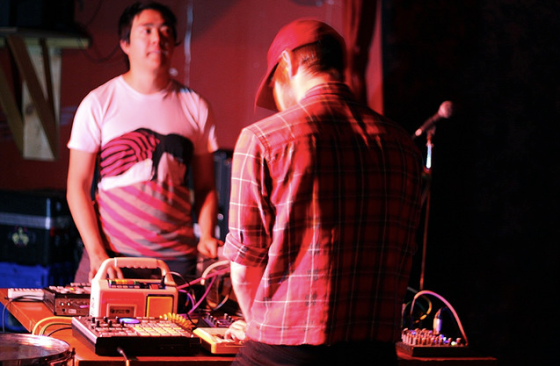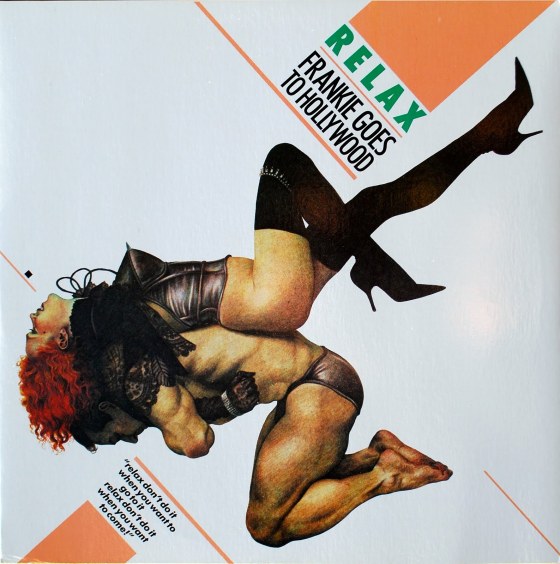You knew that last night’s Olympic Opening Ceremony was going to be musically special when the first minute included Elgar, The Jam, the Eton Boating Song and Fuck Button’s ‘Surf Solar’, as the camera tracked from the source of the Thames down to the Olympic Park.
Fuck Buttons!

This is, by definition, the most mainstream event on the plant, and Fuck Buttons are there, right at the start as a wild and wonderful flag-waving celebration of what is real and wonderful about our world. Not built-by-numbers pop hits, but by a gorgeous, brutal piece of Andrew Weatherall-produced synth noise, a ‘Glider’ for this decade.
Underworld, who masterminded the soundtrack to the ceremony, subverted everything music is supposed to do at a showcase event like the Olympics. Instead of broadcasting pop hits that were built with profit in mind, or that smooth out the rough edges of life into a lowest common denominator average, they took the music not underground, because these were predominantly pieces of music we all know and love, but back to the margins, where all the most interesting things begin.
Along with the aforementioned Fuck Buttons, whose name is censored down to a more acceptable F Buttons on TV and radio, the show also included at least five pieces of music that were either banned at the time of release or that had a controversial relationship with the establishment. There was not just one Sex Pistols track, but two, starting with God Save The Queen and culminating with the pogoing punks with big heads going mental to Pretty Vacant, a song whose chorus is usually sung along to with particular focus on the last two syllables of the final word.
You can only imagine what David Cameron made of it. #savethesurprise? Ho ho, yes!
Frankie Goes To Hollywood’s ‘Relax’ was intended by ZTT label co-founder Paul Morely as ‘an assault on pop’, an overt recognition of the band’s keystone reference points of sex, war and religion. Let’s not forget that the original ads for the release featured images of Rutherford in a sailor cap and leather vest and were accompanied by the legend ‘All The Nice Boys Love Sea Men’. As well having all the requisite rub points for an AIDS-bombarded youth, it was an awesome piece of pop music that cost producer Trevor Horn a reported £70,000 of studio costs.

Then there’s Prodigy’s ‘Firestarter’, the most commercial tip of an iceberg that started with hardcore and rave and their early shows at Dalston’s rave-mine Labyrynth and wheeled through jungle before ending up with the freak-faced hardcore pop of ‘Firestarter’. The video was banned by the BBC on the laughable basis that it might encourage arson.
I could go on, about the brilliant use of Underworld’s ‘Dark and Long’ (also used to soundtrack Renton’s worst hallucination in Trainspotting) or how grime was celebrated and showcased, or about how the athletes walked into the stadium to the sound of The Chemical Brother’s ‘Galvanise’ or about the twitter query that maybe, had the KLF organised the opening ceremony? (answer: there would have been a damn sight more blood and burning if they had) or just the whole, fantastic honesty of the thing. But instead, can I just say a heartfelt thank you to whoever let Danny Boyle and Underworld do whatever they wanted. It was an emotional, political, musical riot.
Just imagine, we could have had Gary Barlow in charge.
Fuck Buttons pic: mehan jayasuriya




